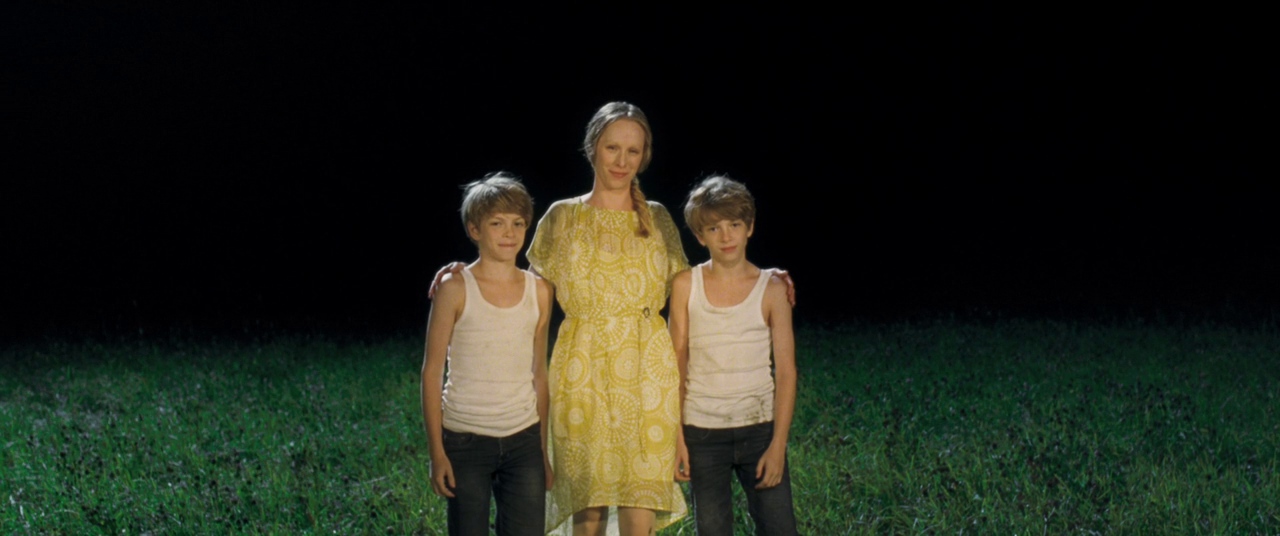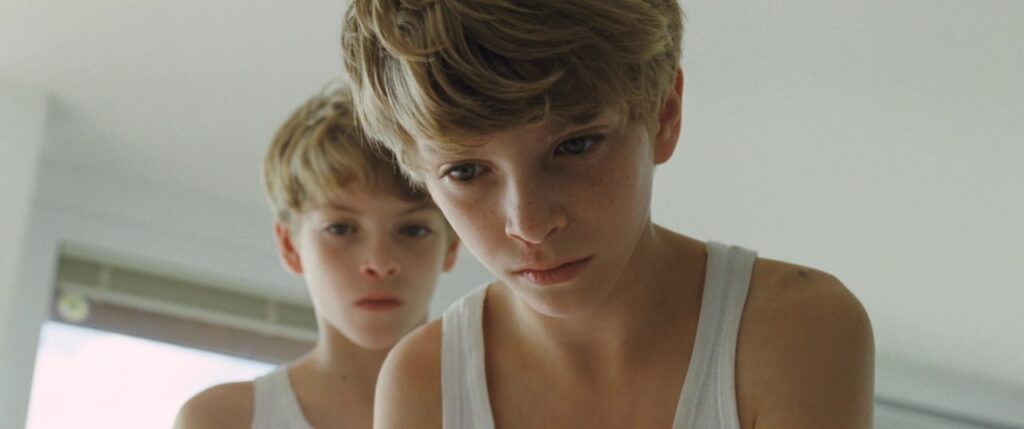
Veronika Franz and Severin Fiala’s chilling 2014 Austrian gem, Goodnight Mommy, prefer the blinding light of an isolated, pristine home, transforming it into a crucible of psychological torment.
It’s a brutal, clinical psychoanalysis of grief, identity, and the terrifying, destructive power of a child’s fractured perception. For those who delve into the darkest corners of the human mind, this film is a haunting, unforgettable journey into madness.
The scene is set in an ultra-modern, almost sterile lakeside house, a stark, cold counterpoint to the warmth of familial bonds. Into this meticulously designed space, two identical twin boys, Elias and Lukas (Elias Schwarz and Lukas Schwarz), await the return of their mother (Susanne Wuest). She arrives, her face swathed in bandages from recent cosmetic surgery, an unreadable mask that immediately casts a chilling pall over their reunion. This bandaged face is not merely a consequence of surgery; it’s the film’s central metaphor for a shattered identity, a mother rendered unrecognizable not just by appearance, but by an unspoken, profound grief.
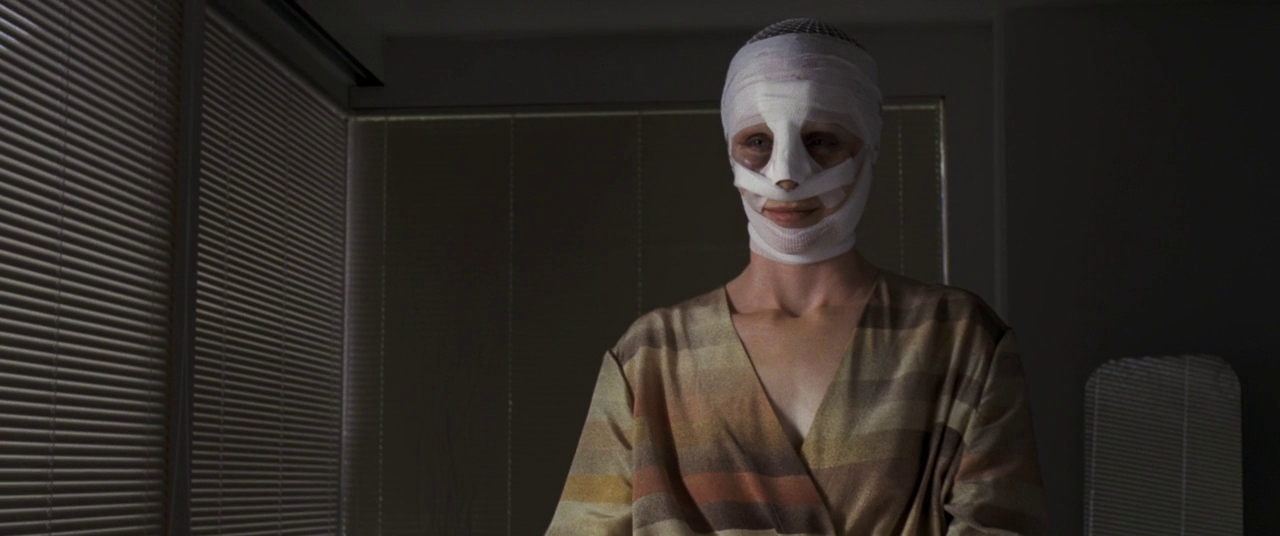
From the outset, the film manipulates our perspective, forcing us to view the world through the children’s eyes. The Mother’s behavior is erratic, cold, and increasingly cruel. She ignores Lukas, favors Elias, imposes strict rules of silence, and lashes out with uncharacteristic fury. The boys, bewildered and frightened, begin to suspect the unthinkable: the woman beneath the bandages is not their real mother. This burgeoning paranoia is the engine of the film’s psychological terror, building an unbearable tension based on the ambiguity of her identity.
The genius, and the horror, of Goodnight Mommy lies in its masterful deception, a slow reveal that exposes a deeper, more devastating truth. As the boys resort to increasingly sadistic methods to force a confession from the “imposter”—tying her up, taping her mouth, even employing a magnifying glass and super glue—we are forced into an uncomfortable position. We witness their brutal acts, yet, through their eyes, we question if their extreme measures are justified. Is this a child’s desperate fight for their true mother, or something far more sinister at play?
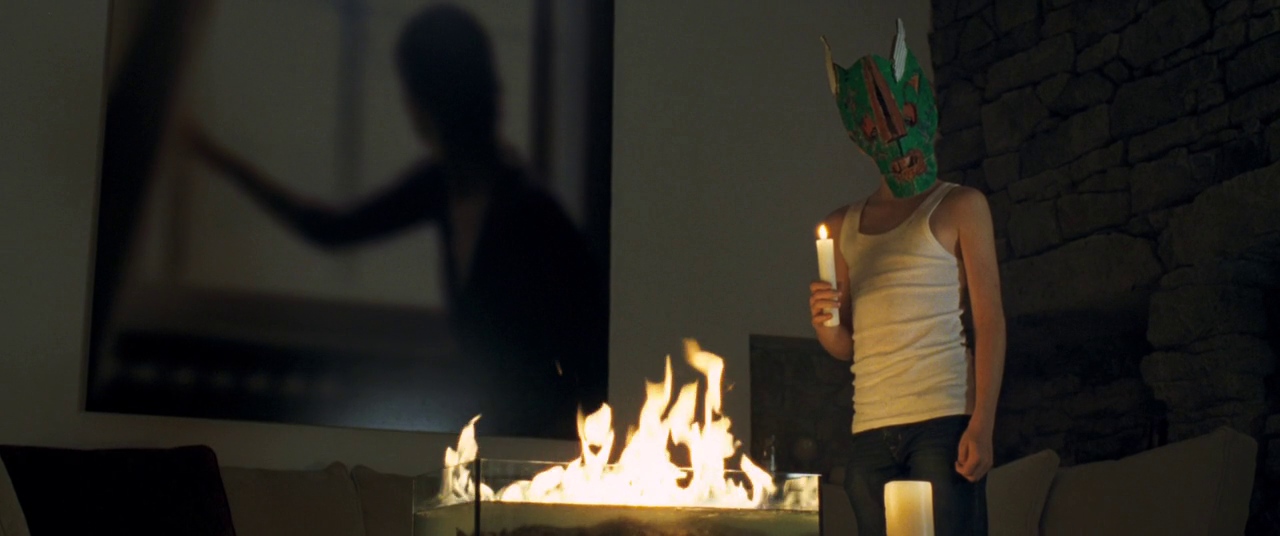
The ultimate revelation is a gut-punch that recontextualizes every single unsettling moment: Lukas is dead. He died in an accident before the film even began, and Elias, unable to cope with the trauma of loss, has manifested his twin as a coping mechanism, a constant hallucination. The Mother’s erratic behavior, her favoring of Elias, her desperation to move on – it all suddenly makes horrifying sense. She is not ignoring Lukas; she simply cannot see him. She is not cruel; she is grieving, and trying desperately to guide her surviving son through his own terrifying delusion, all while suffering from her own pain and attempts at a fresh start (symbolized by the surgery).
Goodnight Mommy delves deep into the darkest corners of attachment, trauma, and the fragmentation of the self. Elias’s hallucination of Lukas is a chilling embodiment of denial and unresolved grief, a self-created monster that enables him to avoid the unbearable truth. Lukas, the phantom twin, acts as Elias’s Id, pushing him towards ever more violent and irrational acts, insulating him from the reality that would demand he confront his pain and perhaps, his own role in the tragedy.
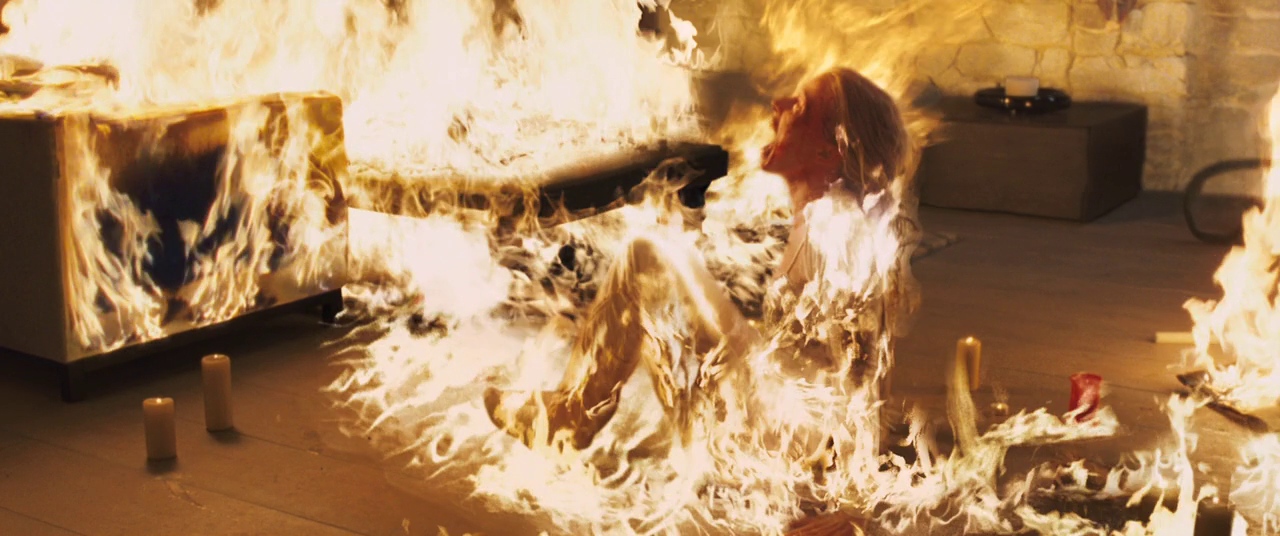
The film serves as a brutal examination of communication breakdown within a family shattered by loss. The Mother’s inability to directly address Lukas’s death with Elias, perhaps due to her own overwhelmed state, only feeds Elias’s delusion. The surgical mask becomes a literal and metaphorical barrier, preventing true connection and understanding. The violence that erupts is not merely physical; it’s the horrifying culmination of unspoken words, unresolved trauma, and a complete failure to meet each other’s emotional needs.
By the time the horrifying climax arrives – the fiery, agonizing death of the very real Mother at the hands of her delusional son – the film has achieved a profound, tragic horror. Elias, unable to distinguish between reality and his comforting delusion, commits an unimaginable act, driven by a phantom. His final, distorted “reunion” with both his Mother and Lukas, bathed in the warmth of the inferno, is a chilling tableau of a mind utterly consumed by its own creation.
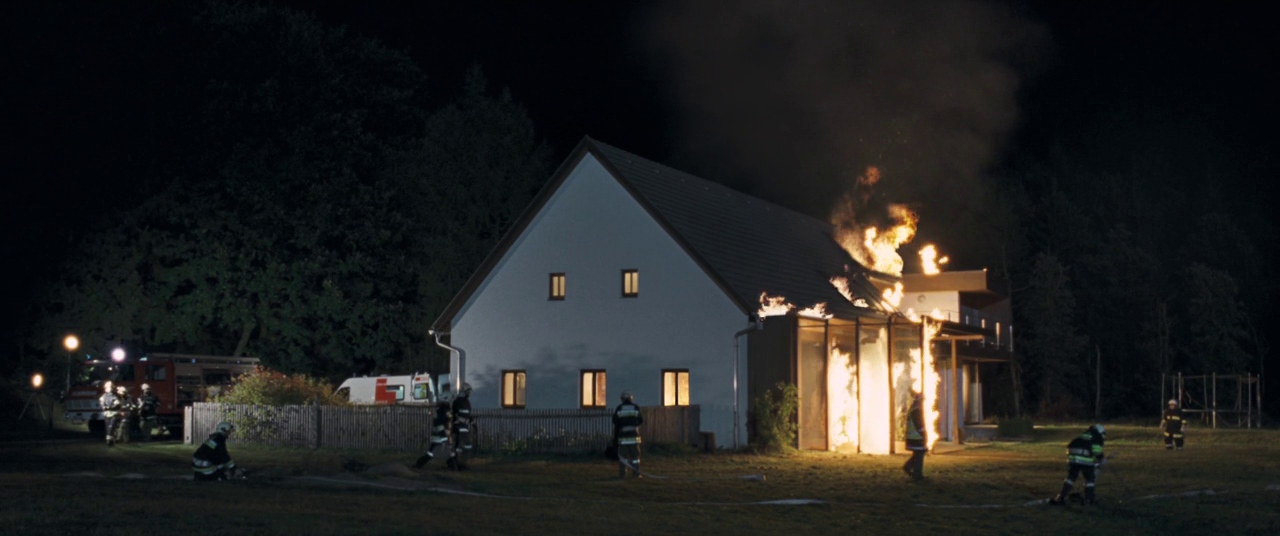
Goodnight Mommy is a masterclass in psychological manipulation, a relentless descent into the mind of a child unable to process reality, and the devastating consequences for those around him. It is a terrifying testament to how the unaddressed wounds of grief can fester, distorting perception and ultimately leading to an unbearable, self-inflicted hell.
